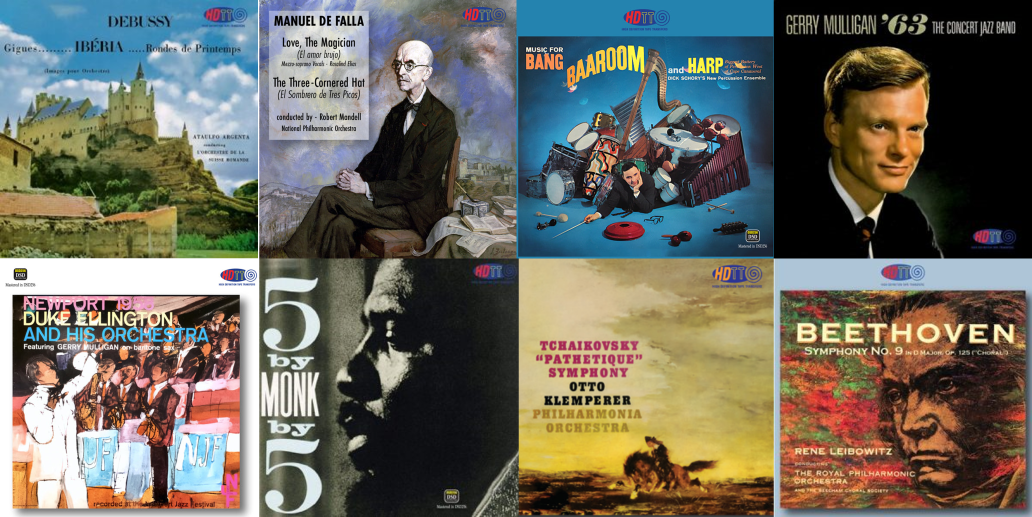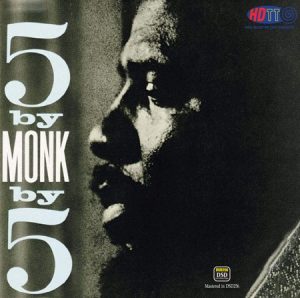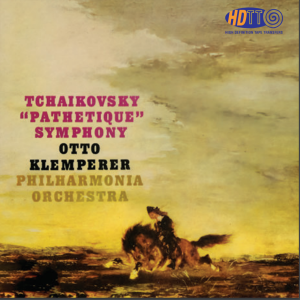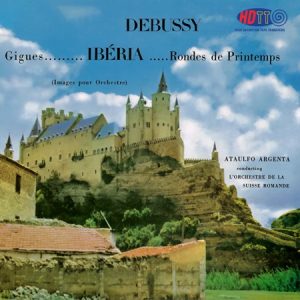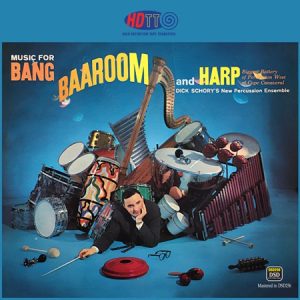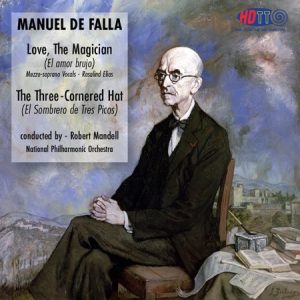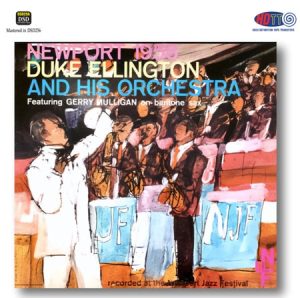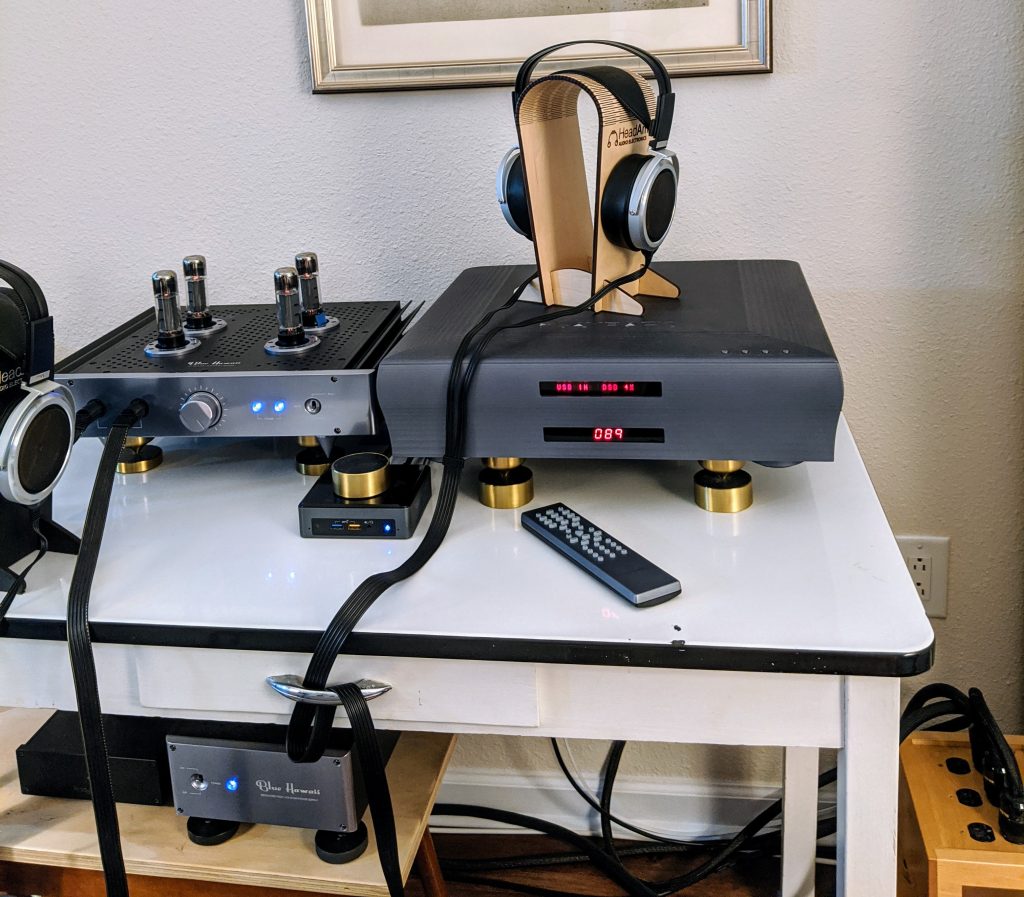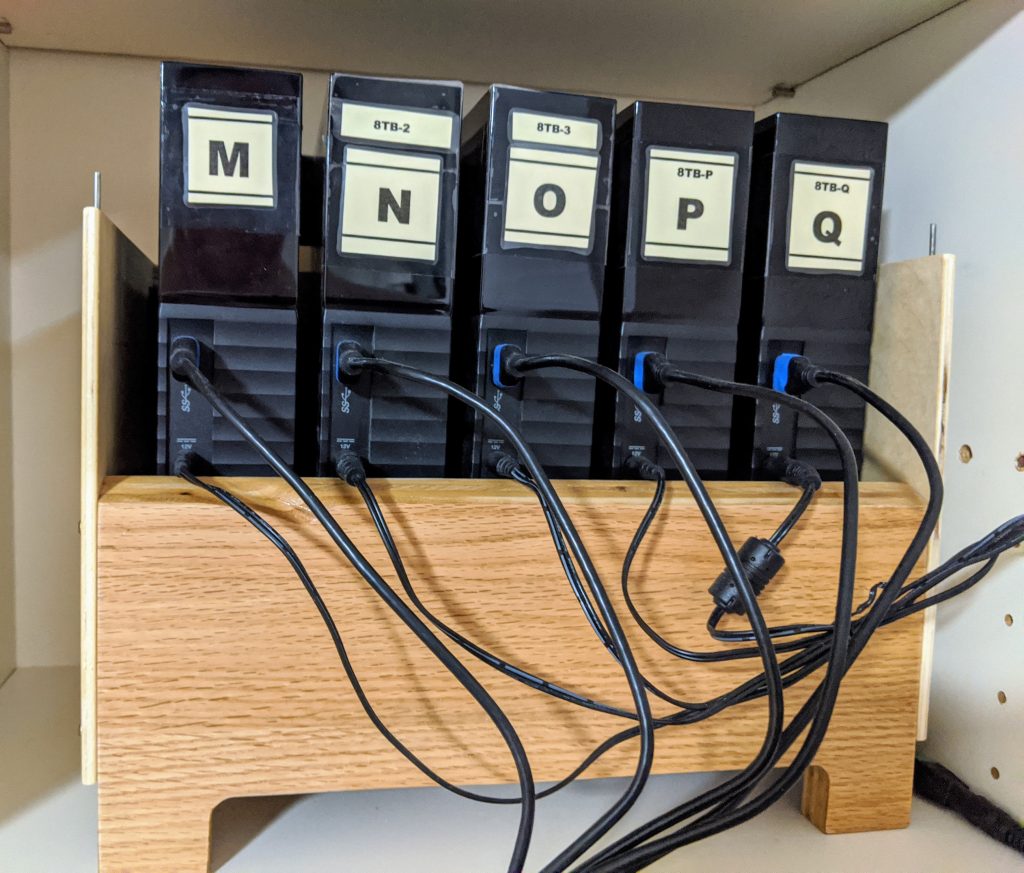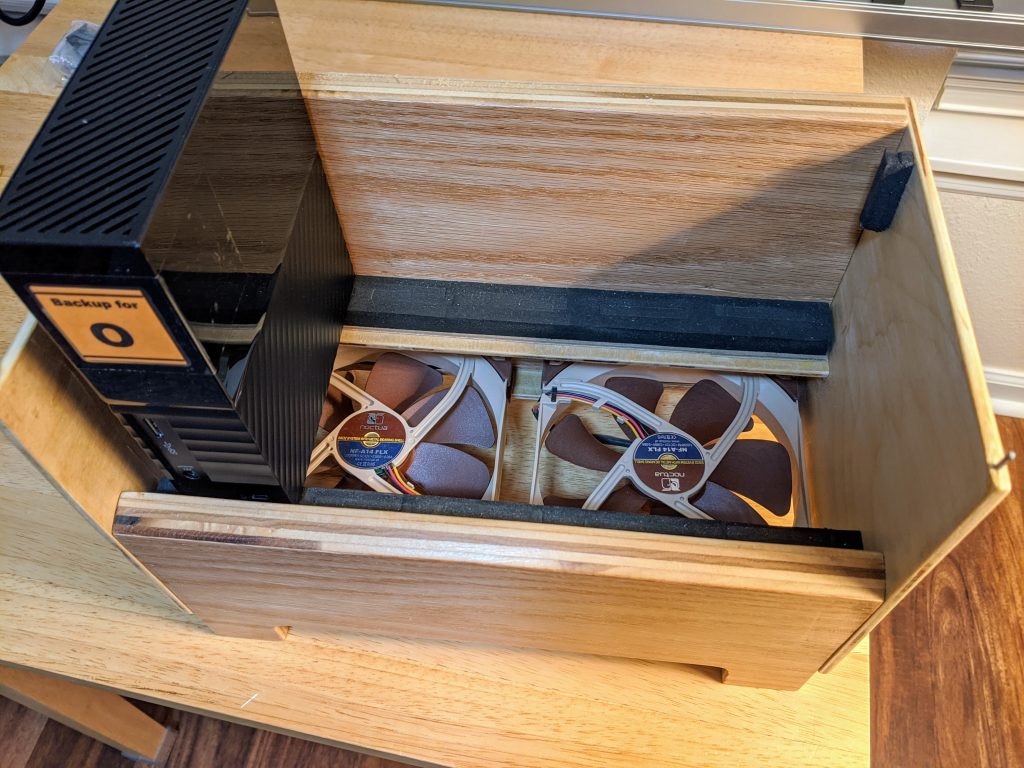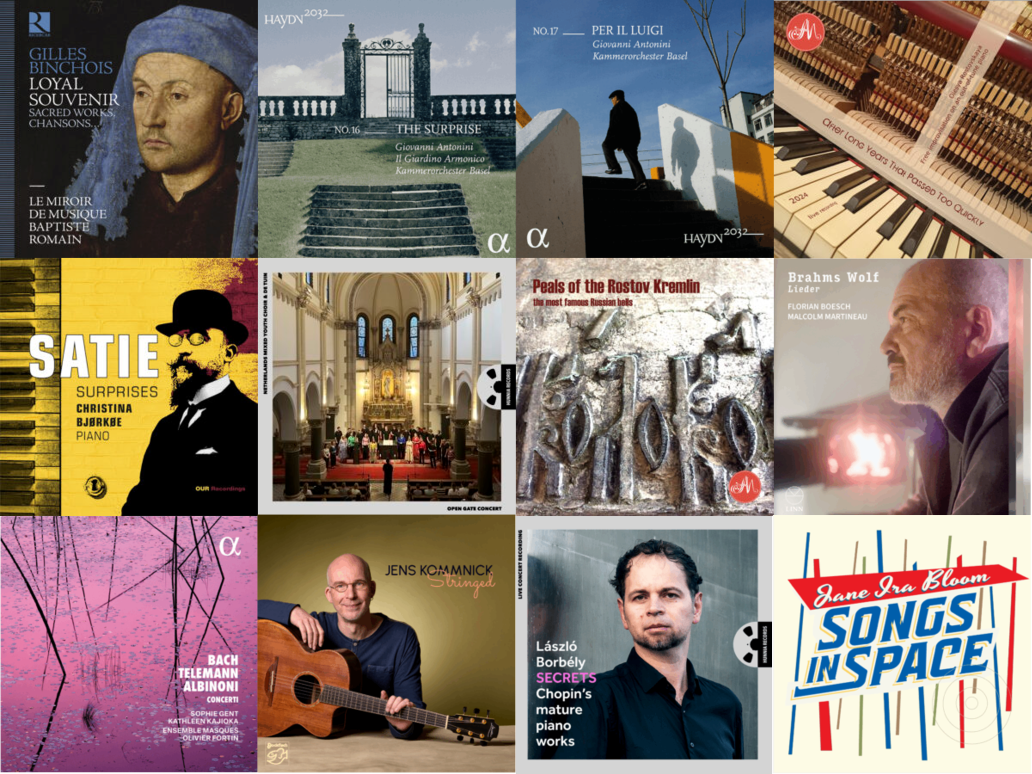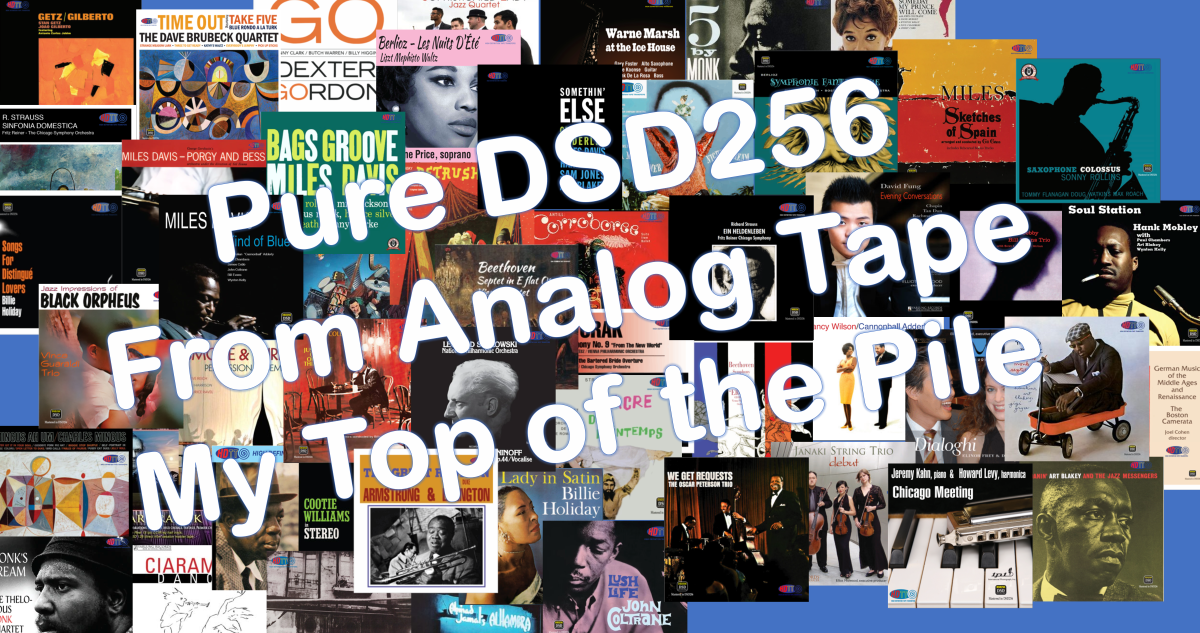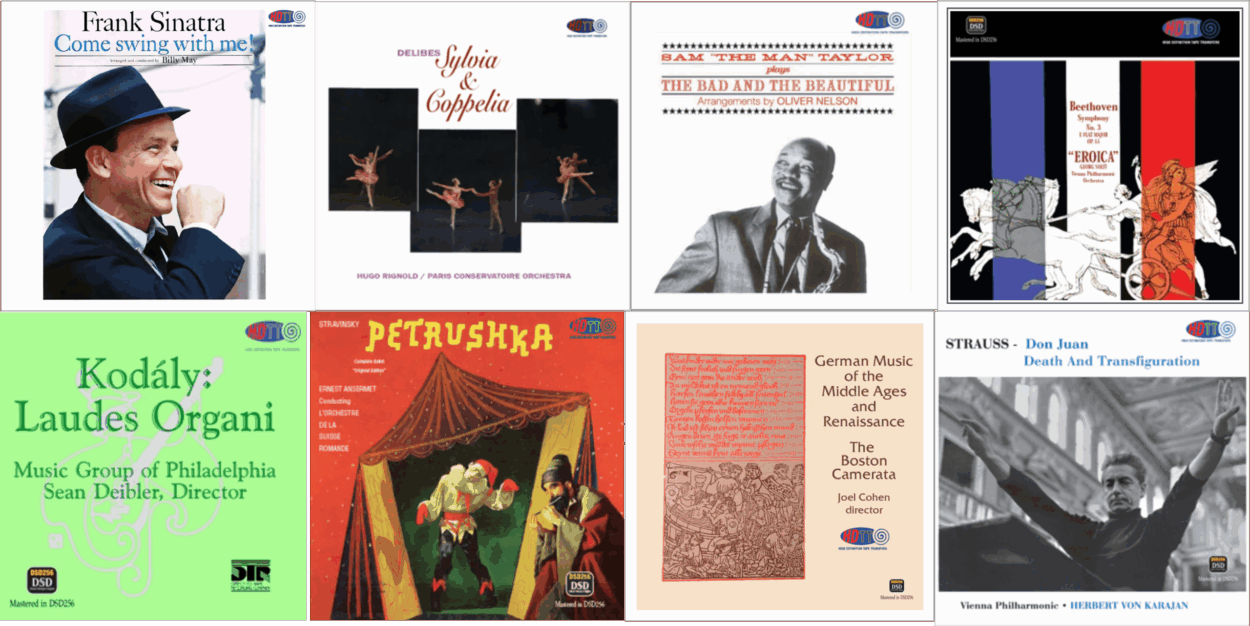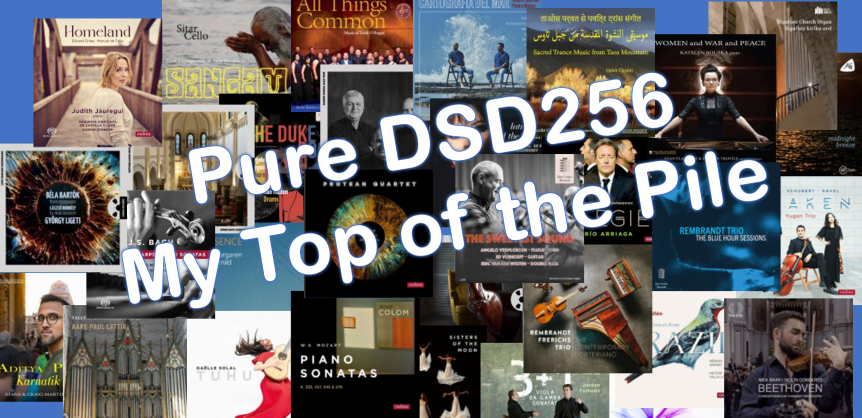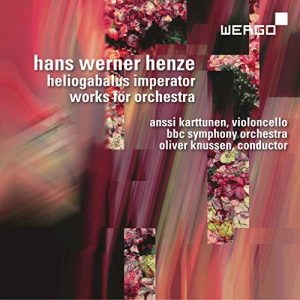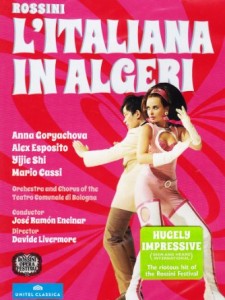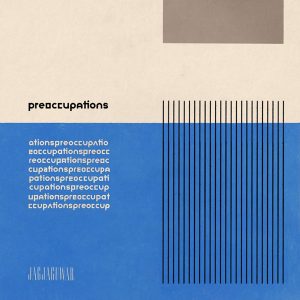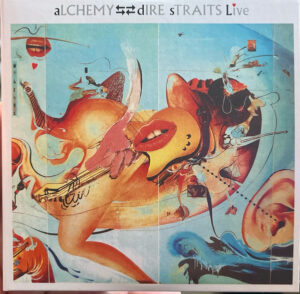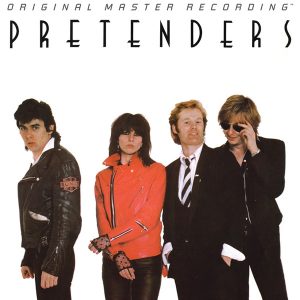I highly prize the excellence of many of the recordings made in the golden era of stereo, recordings from the late 1950s through 1960s. HDTT's reissue of many of the best of these recordings in high definition digital transfers has been a treasure for me as I've gradually rebuilt my music library with high resolution digital files. HDTT's owner and chief engineer, Bob Witrak, is one of the most knowledgeable curators of music from this era that I know. The quality of his selections for reissue is a never-ending joy. And, the sound quality he achieves in his digital reissues is almost invariably better than the sound quality of the various alternative digital reissues, even from those companies with access to the master tapes. This is all due to the care with which he processes these transfers, which are just phenomenal. Here are some recent releases that are very much worthy of your attention.
5 by Monk 5, Thelonious Monk Quintet. HDTT 1959, 2023 (Pure DSD256) HERE
This is Monk's penultimate recording in his illustrious tenure on Riverside Records. The album consists of five Monk originals performed in a quintet setting, and thus the title. Joining Monk (piano) are Thad Jones (cornet), Charlie Rouse (tenor sax), Sam Jones (bass), and Art Taylor (drums). The opening cut, "Jackie-ing," exemplifies so much of Monk's unique compositional style: loose, disjointed, discordant, and exceedingly difficult. While sometimes classed as not among the very best of Monk's many albums, to me this is a great album—an album to savor with its combination of three established Monk songs and a couple new originals.
Hearing Thad Jones is always a very special treat with his great control and great sound. In this small group session he particularly shines. And, in this first outing with Monk, Charlie Rouse shows off a beautiful tone on tenor sax that demonstrates why he became a mainstay of Monk quartets during the 1960s.
The album was recorded during the end of Monk's time with Riverside and perhaps his reported disassociation with Riverside owner Orrin Keepnews is reflected in the album being a tad unfocused. A story I read is that Monk recorded four songs and told Keepnews that was enough for an album. One gets the impression that Monk was trying to get the album made in a hurry, with just the four long tracks. But Keepnews pointed out that 38 minutes was a rather ungenerous playing-time and asked for one more tune. So the musicians came back to the studio for a third session to record just "Jackie-ing"—and aren't we fortunate to get this very excellent song!
Any album by Monk is a worthy album. This is a VERY GOOD album and should be more well known.
This transfer by HDTT is from a 15ips 2-track tape to Pure DSD256, with no PCM processing, and the sound quality is top drawer.
Tchaikovsky, Symphony No. 6 Pathetique, Otto Klemperer, Philharmonia Orchestra. HDTT 1961 2023 (DSD256. DXD) HERE
One of the most grand, and possibly revered, performances in a catalog filled with excellent recordings of this great symphony. Klemperer and Tchaikovsky just seem to be made for one another—at least in performances in the grand romantic tradition. Klemperer has a reputation of being sloooow. And in some performances I agree with this criticism. But not here. Here I find Klemperer simply deliberate. Deliberate with very telling impact.
Klemperer believed in giving attention to every detail of a composition. As he grew older his tendency to slow things down seemed to get more and more extreme. Audiences found his readings either monumentally satisfying or monumentally boring. And his reading of the Sixth will offer grist for both mills.
And yet, and yet... I'll fall into the "monumentally satisfying" camp regarding this performance. The deliberate pacing simply works for me. I'm sucked in. I'm relishing every bit, every turn, every drawn out phrase. The first movement opens beautifully and builds flawlessly. And joy of joys, this is all done without sentimentality. It is very straight forward. Klemperer simply allows the music to speak for itself (unlike some other conductors intent on beating us over the head).
The second movement waltz flows with the halting beauty required. Where it may lack a bit in "charm," all is made up by the conviction in which the music is presented. And the finale is as moving as any performance I've heard. Klemperer's deliberate pacing here rewards with the full excitement and drama of which this last movement is capable. And, he does so without the freneticism of some other performances. Very rewarding!
And the sound quality. Oh my, yes. What EMI captured here in Kingsway Hall is to be celebrated for the excellence of recorded orchestral sound for which the best EMI's are known. It is closeup (for an EMI) without edginess. The strings are silky, rich and purely lovely. The stage depth is not immense, but still satisfying. And the impact of brass and percussion is immense. The transfer from this two-track tape has very significant dynamic range and when that big bass drum appears in the finale the impact is overwhelming (a bit of spot miking, perhaps?).
HDTT's transfer from the 2-track tape is near perfection, as we've come to expect. Clean, quiet, hiss-free, with tremendous detail and dynamics.
Beethoven Symphony No. 9, Rene Leibowitz, Royal Philharmonic Orchestra. HDTT 1962 2023 (DSD256, DXD) HERE
A glorious performance and recording of Beethoven's Choral Symphony, Symphony No. 9! This is another recording from the superb Readers Digest series engineered by Kenneth Wilkinson and produced by Charles Gerhardt in the early 1960s. Conducted by Rene Leibowitz, this performance has all the passion, energy and drive one might hope to hear in a performance of this great work. At the same time, Leibowitz moves matters right along without excess indulgence. This is a masterful, intentional and no nonsense performance from a masterful musician.
René Leibowitz (1913 - 1972) was a French conductor, composer, and music theorist. He was born in Warsaw, Poland, and later moved to France. Leibowitz is notable for his contributions to the interpretation and analysis of 20th-century classical music, particularly the works of composers like Arnold Schoenberg, Anton Webern, and Igor Stravinsky. His arrangement and orchestration of Mussorgsky's Night on Bald Mountain is my all time favorite version of this work which is most commonly heard in the Ravel orchestration. (Would that HDTT could get hold of a 15ips tape of his recording of this work with the RPO!)
The Royal Philharmonic Orchestra of this era was an exceptionally fine orchestra with players of the highest technical caliber. Today it continues as one of the great orchestras of the world, ranking just below the "Top Five" in most assessments. Based in London, they perform over 200 concerts a year.
And, oh my, the Kenneth Wilkinson engineered recording is just superb. As I've written elsewhere, Wilkinson's partnership with Charles Gerhardt in this Readers Digest contract freed him from the demands of the Decca hierarchy and allowed him to return the purity of his craft, making some of the finest sounding recordings of his career. Very similar to his work for Lyrita, his Readers Digest recordings are simply mic'd (reasonable so, at least) and have a directness and purity of sound that is just a pleasure to hear. Superb orchestral balance, exceptional inner detail, great dynamics and a beautiful tone throughout.
This release is yet another excellent transfer from LP in HDTT's ongoing Vinyl Record Restoration (VRR) series. In this case the source was an original UK ED-1 pressed by Decca. I have listened to every one of these VRR titles released thus far and there is a continuing "goodness" to the high quality of the transfers that HDTT is achieving from LP. If you enjoyed the LPs, you'll find these transfers to be exceptionally enjoyable. These transfers may even sound better, depending on the quality of the vinyl and playback system available to you at the time. Is there a bit of congestion in the most dynamic passages of full orchestra and chorus going full tilt? Yes. There is. But, allow those occasional short passages pass by and what you have overall is an exceptionally fine performance in exceptionally fine sonics. Highly recommended!
Debussy Images Pour Orchestre - Ataúlfo Argenta, L'Orchestre De La Suisse Romande. HDTT 1957, 2023 (DSD256, DXD) HERE
This is an amazing album. You need it. At least I need it. Whatever, it is a glorious performance captured in sound quality, which is clear, rich-yet-detailed, and quite simply gorgeous. It has that tubey midrange magic that is to die for and, if you've only listened to modern reissues, you've never heard.
This is an amazing album. You need it. At least I need it. Whatever, it is a glorious performance captured in sound quality, which is clear, rich-yet-detailed, and quite simply gorgeous. It has that tubey midrange magic that is to die for and which, if you've only listened to modern reissues, many have likely never heard. This transfer comes from an original London Blue Back LP and it is truly magical to hear. Open, airy and sweet. Well balanced yet still big and lively. Gordon Parry was working some special magic this day in Victoria Hall, Geneva.
Argenta brings out the folk quality in the work, whether the English folk tunes in Gigue or the Spanish flavors in Iberia. And he also brings out some brilliant playing by the OSR, with a sense of affection and wonderful warmth of expression that is transcending of mere technical capacity (which was often missing, but not here). HDTT's transfer is a triumph and a great addition to what is proving to be an excellent series of VRR releases. Well done!
Gerry Mulligan '63, The Concert Band. HDTT (Redux) 1962, 2023 (DSD256, DXD) HERE
What a pleasure to hear even higher levels of exceptional sound quality extracted by HDTT with their never ending quest to deliver the best sounding transfers they are able to make. Sourced from a 2-track tape, this Redux reissue of Gerry Mulligan '63 is noticeably improved over the original release from 2016—cleaner, clearer, more open, more transparent. If you have the original HDTT release which was sourced from a Verve 4-track tape, the sonics in this re-release are worth the upgrade. If you don't have it, all the more reason to get this now.
This album was the final recording by the Concert Jazz Band before Mulligan had to break up the group. And while it may be considered a "lesser" album, it is still exceptionally good and a worthy addition to one's collection. Great writing from Bob Brookmeyer and Gary McFarland. Fine ensemble playing by the very best musicians of the time. Great solos! With trumpeter Clark Terry and guitarist Jim Hall co-starring with Mulligan. At bit less than 34 minutes, the album is a bit short but of high quality. Highly recommended.
Dick Schory's Music For Bang, Baaroom And Harp. HDTT 1958, 2023 (Pure DSD256) HERE
This is just pure audiophilia fun and games—all the various percussion instruments you can imagine gathered on stage for a riotous, rollicking, extravapalooza of sonic excess. Recorded by RCA in 1959 as a stereo demonstration album, this record has been a mainstay in audiophile circles ever since. It's as good today. And in this transfer from a 15ips 2-track tape from the estate of RCA Engineer Joe Habig directly to DSD256, with no intervening processing, we're hearing that analog tape in as pure a manner as most of us will ever get to experience.
If you know the LP, you know why I can get excited about this. If you've never heard an original Shaded Dog LP but only heard reissues, you've not heard what is on this recording. It is stupendous. Just get it for the sheer visceral excitement it delivers. Turn up the volume and wig out! It's just pure fun.
Falla, El Amor Brujo, The Three-Cornered Hat, Rosalind Elias (mezzo-soprano), Robert Mandell (conductor), National Philharmonic Orchestra. HDTT 2023 (DSD256, DXD) HERE
Bob Witrak strikes again with another winner from the Readers Digest series of recordings engineered by Kenneth Wilkinson and produced by Charles Gerhardt. I'd not heard this recording before and was quite nicely stunned by it on my first listen. It was originally released by Readers Digest (RDA 68), but I suspect it was recorded several years earlier than that.
Sourced from a 15ips 2-track tape from the estate of RCA Engineer Joe Habig, the sound is so immediate and clear that it rivals the best modern recordings. And as another listener commented, "Wilkinson and Gerhardt knew what the heck they were doing in exposing all this orchestral detail while preserving a natural, holistic sonic environment! I'd never heard of Mandell before, but the National Philharmonic was a first-class orchestra at that time, and the parts I've heard so far crackle with electricity." (Chris from Lafayette posting in Audio Asylum, HERE.)
Rosalind Elias (1930-2020) was an American opera singer who enjoyed a long and distinguished career at the Metropolitan Opera beginning in 1954. She made quite a number of recordings for RCA during the 1960s. Robert Mandell (1929-2020) was an American-born British-based conductor who studied under Leonard Bernstein and Jean Morel. He was the founder of the New York based Ars Nova, the group that recorded the amazing performance of Stravinsky's L'Histoire du soldat for Westminster in 1956 under his direction. (For a discussion of this marvelous release, see my earlier article "Does a 1956 Recording Really Belong in a High Res Music Library?" found HERE.)
But, back to this recording of Manuel de Falla's music... These performances of El Amor Brujo and The Three-Cornered Hat are as dynamic, characterful and colorful as any I know of in the catalog. I may prefer Rafael Frühbeck de Burgos' readings slightly, but these by Mandell are very fine and I'm grateful to now have them in my music library. Plus, the sound quality is just luscious in every way!
Duke Ellington And His Orchestra – Newport 1958. HDTT 1959, 2023 (Pure DSD256) HERE
Recorded live at the Newport Jazz Festival, Newport, Rhode Island (9 - 14) on July 3, 1958, this album includes the entire live set, warts and all. Historically, it is an important release in that the performances are preserved intact. As HDTT says, "Historically, it is an important release in that the performances are preserved intact." Sourced from a 15ips 2-track tape and transferred directly to DSD256 without any PCM processing, the sound quality is fresh and alive—almost as if you were actually there.
Vocalists include Ozzie Bailey (Track 3), Lil Greenwood (tracks 11 & 12), and Mahalia Jackson (Tracks 17 & 18). Gerry Mulligan is featured on baritone sax. Along with the rest of the great Ellington orchestra (including Clark Terry on trumpet and Johnny Hodges on tenor sax, this is a lineup of exceptional musicians.
Songs include many of the Ellington classics: "Take the 'A' Train," "Duke's Place," "Bill Bailey, Won't You Please Come Home," "El Gato," "I Got It Bad (and That Ain't Good)" and more. Twenty-one tracks and an hour and forty-one minutes worth of outstanding jazz.




